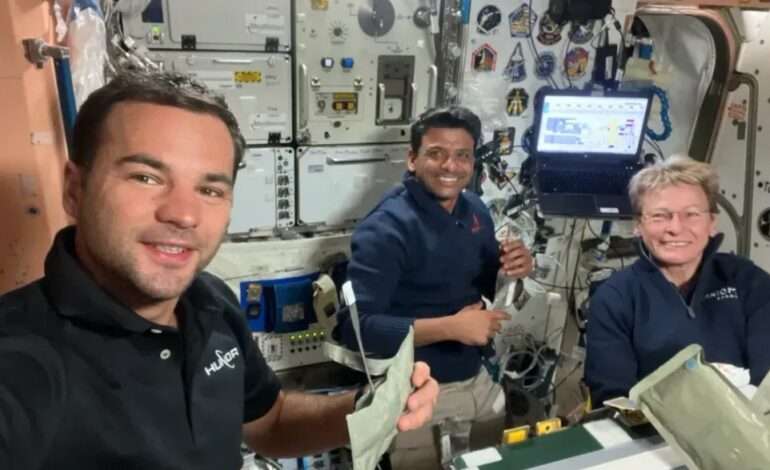
Shubhanshu Shukla develops brain-computer interface aboard ISS
Indian astronaut Shubhanshu Shukla is pushing the boundaries of neuroscience in space by working on a brain-computer interface (BCI) experiment aboard the International Space Station (ISS). NASA announced that Shukla, as part of the Axiom Mission 4 (Ax-4), is collaborating with Polish astronaut Sławosz Uznański-Wiśniewski to test how brain signals can control computers in microgravity.
The experiment, titled Thoughts over Gravity (PhotonGrav), uses near-infrared spectroscopy (fNIRS) to monitor brain activity in space. In the Columbus laboratory module, Uznański-Wiśniewski wore a special Bluetooth-enabled cap that recorded his brain signals, while Shukla worked on calibrating the hardware and optimizing signal clarity.
The goal of the experiment is to evaluate whether astronauts can use mental commands to interface with computers in low-gravity conditions—an advancement that could one day aid space operations and communication.
Shukla, a Group Captain in the Indian Air Force, has also been involved in several other critical studies. In NASA’s Destiny lab, he worked with tardigrades (tiny aquatic organisms) to understand how they survive extreme environments, including microgravity. He also examined muscle cell stem cultures under a microscope to study muscle repair in space.
Beyond scientific experiments, Shukla is engaging with students back on Earth. He has recorded an educational video explaining how the human digestive system adjusts in space and is scheduled to interact live with Indian school students and ISRO scientists via ham radio.
The Lucknow-born astronaut is on a 14-day mission with three other astronauts from the US, Poland, and Hungary. Together, they are conducting nearly 60 experiments representing 31 countries—including seven from India.